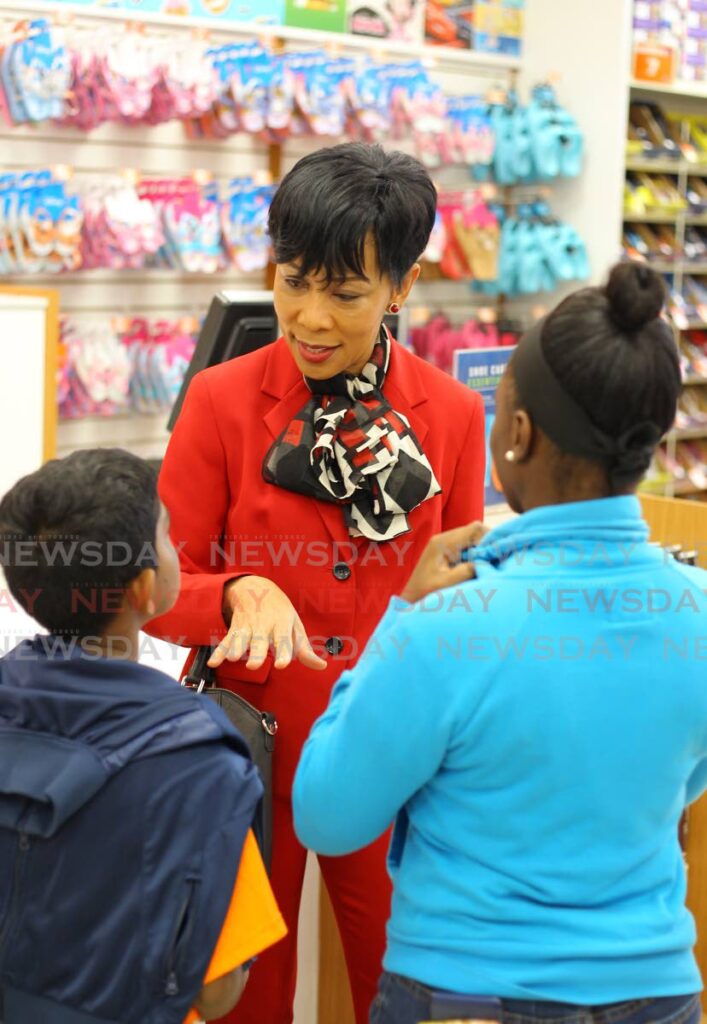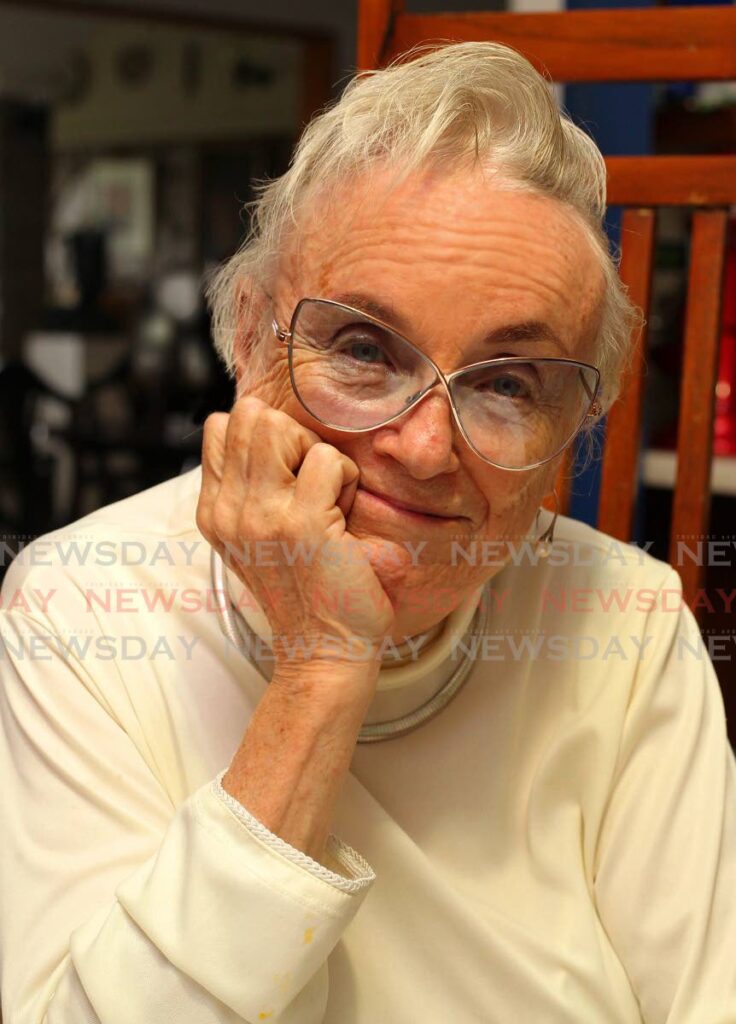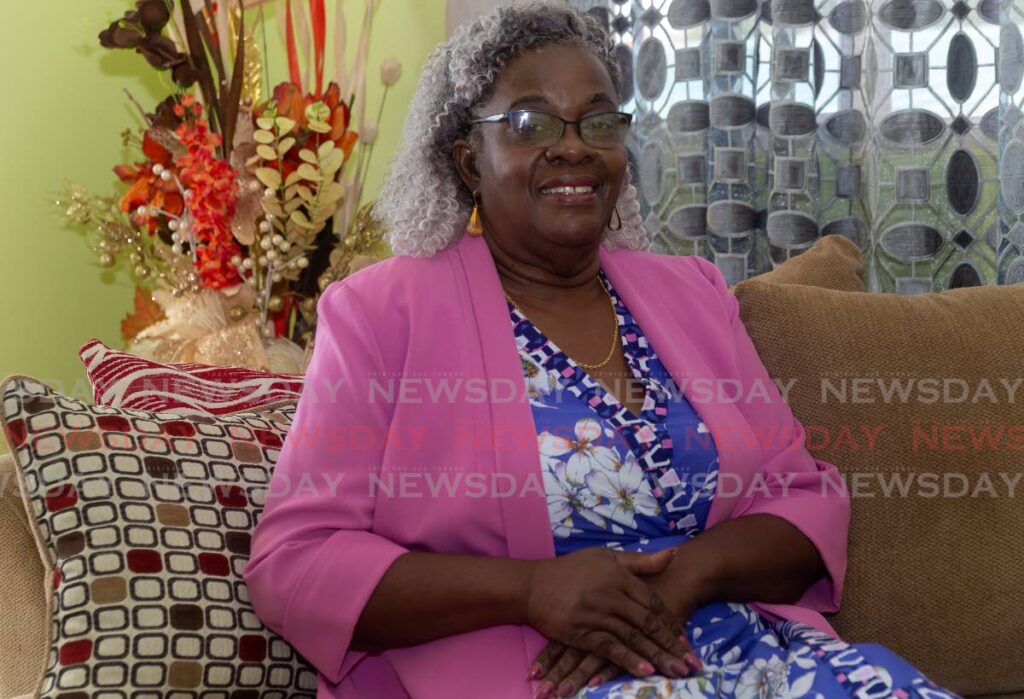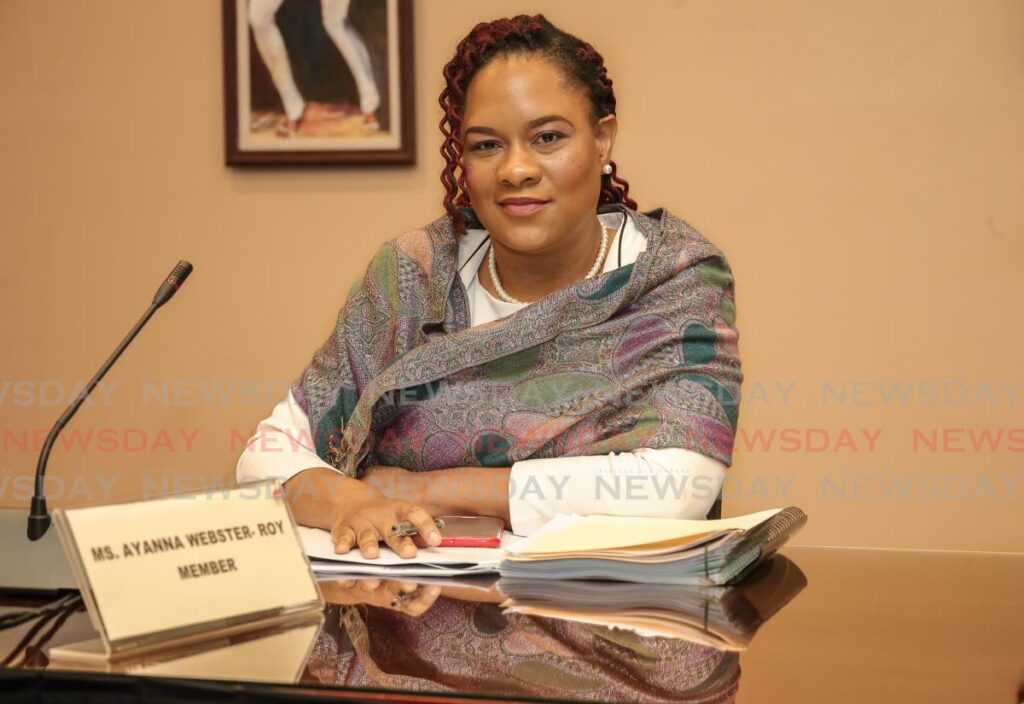Experts on Sharon Rowley's call: Should children be taught what gender-based violence means?

Attorney Sharon Rowley’s suggestion that gender-based violence awareness be taught in primary schools has sparked a fresh discussion about the strategies that could be implemented to combat and reduce the scourge at least by 2030.
Rowley, wife of the Prime Minister, made the suggestion last Saturday at a forum titled GBV & ME: Insights and solutions from the youth in region, at the Prime Minister’s official residence in Blenheim, Tobago.
The event, hosted by the Indigenous Creative Arts Network (ICAN), was held in collaboration with the United Nations Spotlight Initiative. Rowley is the Spotlight Initiative’s local champion.
It featured contributions from gender-based violence activists from across TT as well as survivors and technocrats.
The forum came in the wake of the murders of four women two weeks ago. They were Stephanie Calbio, 34; Abeo Cudjoe, 31; Krishana Mohammed 24; and the most recent victim, Marva Sutherland, who was killed on May 12 at her Diego Martin home after a dispute with a man she knew.
Rowley’s suggestion has garnered support from stakeholders, some of whom have been championing the cause for decades.
Women and child rights activist Diana Mahabir-Wyatt said she has long advocated that gender-based violence awareness be taught in schools.

She believes in light of its prevalence in the society, gender-based violence cannot be sugar-coated.
“A lot of the problems we have dealing with teenage sexuality, teenage pregnancy and the emotional and physical problems that people experience are because of their lack of awareness of even the physical aspects of their own bodies, much less those of other people. This should have been taught from primary school,” she told Sunday Newsday.
Head of the Caribbean Centre for Human Rights, Mahabir-Wyatt suggested gender-based violence awareness could be conveyed via age-appropriate curricula.
Using sexuality as an example, she said children would not necessarily be taught the mechanics of sexual intercourse but biological functions.
Mahabir-Wyatt said she learnt that in many schools, eight and nine year-olds already knew about sex.
“That is true not just in Trinidad but also throughout the world where children have access to the internet and television.”
Mahabir-Wyatt argued that eight and nine year-olds are naturally curious about their bodies and sex.
“It is not that children don’t know that it exists. They know that they come into the world as a result of it.”
She said while it is much better for families to talk to their children about sex, “parents who are influenced by certain institutions are afraid to talk about it.
“It is much better for children if they learn about sex from their families but a lot of them do not know how to handle it.”
Noted Tobago educator and national award recipient Dr Verleen Bobb-Lewis also supports the teaching of gender-based violence awareness in primary schools but believes it can also be introduced at the pre-school level.
“It is all about how you organise your curriculum,” she said.
“You could start it at pre-school then build on it as you go to different levels. You can start by teaching children how to love people in their families and respect for others, how to treat and listen to people, how to prevent a quarrel if somebody says something that you don’t agree with, how to be apologetic. You can do that at the lowest level. But, ideally, it something we should be doing all the time at all levels.”
Bobb-Lewis said in the primary schools, where closer bonds are developed among groups of children, they can be taught how to solve conflicts and manage anger when problems arise.

“The same can be taught in the secondary schools when students start to get girlfriends and boyfriends.”
Bobb-Lewis said conflict resolution is a key component in reducing gender-based violence – and violence generally – in the society.
She alluded to a video on social media in which students at a Tobago school fought a security guard.
“In some instances, that is all they know, to fight back.”
Bobb-Lewis believes the education system has to take some responsibility for conflicts that arise within schools.
She said, “The system of education and the way we teach, grade, rank and divide and decide which school is better than the other, that, too can lead to a lot of conflict. We have to teach equality and equity in action so no one feels better than the other.”
Saying more consideration should be given to the less fortunate, Bobb-Lewis observed the school system is sometimes too punitive.
“The school perpetuates some of these behaviours because a child may come to school without their supplies or may be sent back home because they do not have the right shoe or socks.
“Sometimes, we are too punitive. Yes, you want to make sure that you have standards and children obey the school rules but some things are out of their control because of poverty.”
National Parent-Teacher Association president Kevin David said gender-based violence awareness could be implemented as a topic within the Primary Health and Family Life Education curriculum where special emphasis can be placed on it.
“This will go in hand with morals, values and good behaviour.”
David said guidance counsellors can also be used “to reinforce this area.”
THA Secretary of Education, Research and Technology Zorisha Hackett simply said she supported it.
Last Saturday’s GBV & ME seminar offered lively discussion.
Secretary of Health, Wellness and Social Protection Dr Faith BYisrael set the framework, opting to focus on the "ME" in the title of the forum.
“All of us play a significant part in perpetuating gender-based violence,” she contended “What are you doing to perpetuate gender-based violence?”
BYisrael used the example of a baby boy dressed in pink clothing to illustrate her point.
“Somebody puts something pink on him and we automatically have a fit because boys don’t wear pink. Why is it that boys can’t wear pink? Because pink is girl colour.”
She noted women and girls are often viewed as the fairer, weaker sex and as such, inferior to men and boys.
“When a boy does something and you tell him that he behaving like girl you are already telling him at that point that girls are inferior to you. So to be called a girl is an insult.”
Mayaro-based youth activist Chile Borel observed that most women in domestic violence relationships have low self-esteem.
“When your self-esteem is broken, you think that what you see is all that you are worthy of. We need to break this cycle and we really need to start to think about the long term effects because gender-based violence is not a one and done, it is not an overnight thing. It starts from young and what you grow up in is what we will grow into,” she said.
“What we accept and see at a young age is what we think is acceptable as we are older. So we really have to think about how we treat our children.”
Tobago Youth Council president Janae Campbell suggested that the violence in society emerged out of the plantation era.
She recalled her high school history teacher saying that many of the descendants of slaves also grew up in an era where they too were beaten.
“We have now translated that energy to our children. And so if you have a son and he does something wrong, your way of dealing with it is just beating. When he grows up violence is all he knows and that is the only thing he can translate.
“So we promote it in our personal ideologies, in the way we interact with one another.”
Campbell said people need to be taught how to process their emotions “because I believe all these problems come from frustrated people.”
Dionne Mundy, a clinical psychologist with Life Empowerment Centre of TT, concurred, saying emotional intelligence could be taught in pre-schools.
“Because it is very difficult when you have behaviours learnt to unlearn them. Sometimes it takes six to nine months to unlearn behaviour depending on the type of intervention that is taking place,” he said.
“With that in mind, I think we need to invest a lot into our curriculum and transform the way we think and pursue things. If we attack it from the root, when the grows and matures, they are likely grow and mature with these things in mind.”
Theatre practitioner Kasel Campbell, who works with boys mostly in at-risk communities, said men must become “champions for women and champions of women.
“Young men are very desensitised to the value of women and the role of the man in the home,” he observed.
Campbell said some boys in bad communities grow into well-adjusted adults because they have a support system of men from whom they can “bounce ideas.”
He believes avenues must be developed to create positive rites of passage for young men.
“The rights of passage we have now are the blocks where men engage in drinking and other activities. So we need to develop our own.”
Rowley said members of society must be their brother’s keeper.
“If we do that, we may perhaps not have the number of incidences of GBV that we have today,” she said.
“We have to look after our friends. We have to look after our family members because very often right within the family there are persons, who may not come to you, may not open up themselves to tell you that my husband, my boyfriend, they are abusing them constantly.”
She added, “That type of abuse can go from morning to night, day to day. Life is hell for those people and it starts in many cases from young adults. But even before that you have a boyfriend who you do not realise is abusing you. He may hit you, verbally abuse you, make you feel inferior, reduce your self esteem and it continues throughout your lifetime.”
Rowley noted that some women become victims of abuse as early as age 15 “and they go all the way accepting that abuse until they are 60, even until they die.”
She added some people have lived with their abuser for their entire life.
“You have children who are looking on at the abuse and feel that this is what it must be about and you, therefore, have a chain reaction and intergenerational violence from mother to child to grandchild.
“We have to do everything in our power to support persons being abused. We have to try to get them to come out and verbalise what is happening to them. On that basis, we know what we have to do.”
Minister in the Office of the Prime Minister (gender and child affairs) Ayanna Webster-Roy said the ministry is working tirelessly to promote greater awareness of gender-based violence.

The ministry, she said, has already begun ramping up its public education efforts with the message, ‘Zero tolerance to gender-based violence.’
Webster-Roy said the ministry has also been collaborating with TTPost to bring information to citizens’ doorsteps.
“As I say to persons all the time, it begins with personal responsibility. Each and every citizen deciding to do better. I would be better and collectively, I am confident that we could eradicate all forms of violence in TT.”
Among the participants at the event were UNFPA Youth Advisory Group representative Bernice Antoine; Youth Voices Matter and Silver lining Foundation representative Khaleem Ali; Tunapuna/Piarco Regional Corporation youth representative Daryan Campbell; Women of Substance founder Onika Mars; spoken word poet Kayla Parris; sociologist and dancer Ameika Louis; and THETA member Olimall Gordon.


Comments
"Experts on Sharon Rowley’s call: Should children be taught what gender-based violence means?"